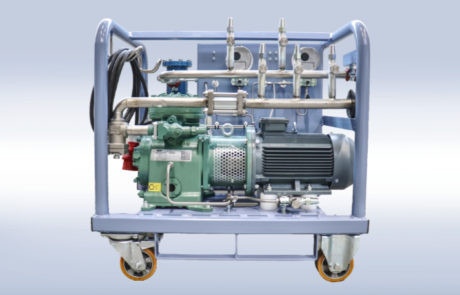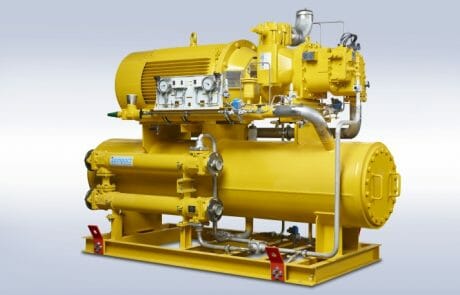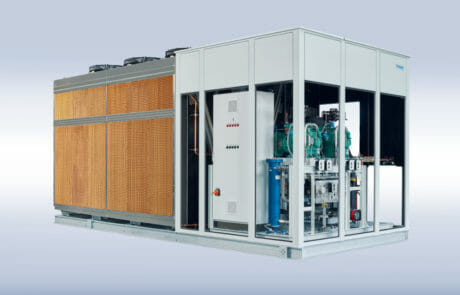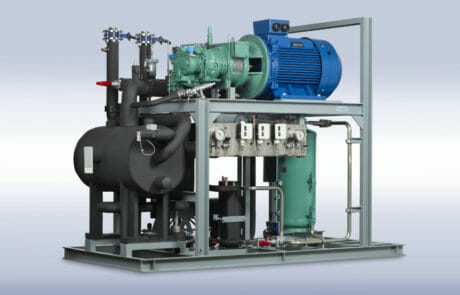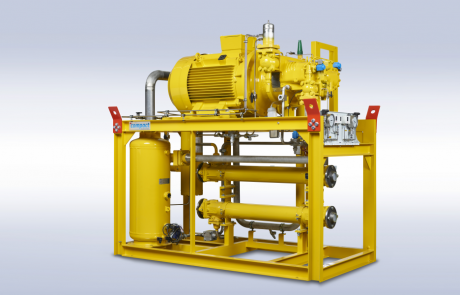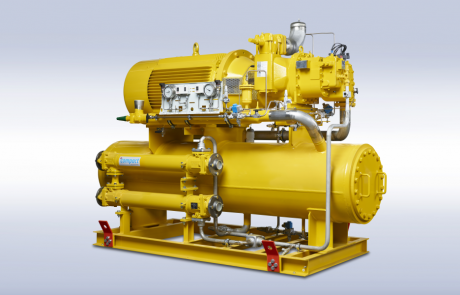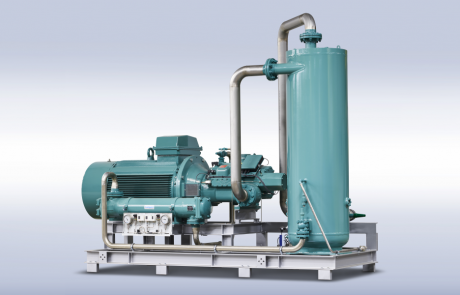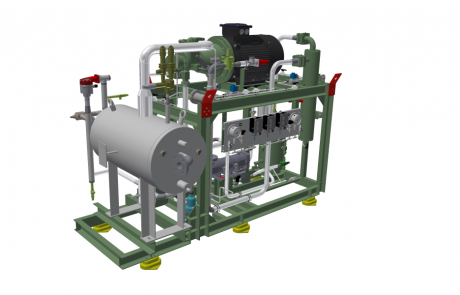Refrigerant NH3
With a GWP value of 0, ammonia (NH3, R717) is ideal for sustainable and long-term refrigeration solutions. The excellent heat transfer properties of ammonia make it the preferred choice for rather high capacities in large-scale refrigeration and industry. As a rule, these are used for cold water/brine production and, for example, reliably supply production and storage processes with cold.
Our ammonia refrigeration systems fulfill every cooling task efficiently and safely, in compliance with all applicable standards and laws. In addition, our ammonia-based refrigeration systems are eligible for subsidies in accordance with the BAFA guidelines, making them an even more attractive choice.
Discover the benefits of ammonia as a refrigerant and rely on sustainable and efficient refrigeration solutions.
Products
Products
References
References
FAQ
Our FAQ area offers you a quick and convenient way to obtain information. If your question is not listed, please do not hesitate to contact us. We will be happy to help you.
Contact persons

Dirk Leuteritz
Sales Manager
Phone: +49 351 20797-36

Sebastian Zürich
Head of Project Planning
Phone: +49 351 20797-29

Sebastian Reupricht
Sales & Aftersales
Phone: +49 351 20797-50
Contact
Discover a sustainable future with compact refrigeration technology! Our team will be happy to support you with efficient and environmentally friendly refrigeration solutions – contact us today.
